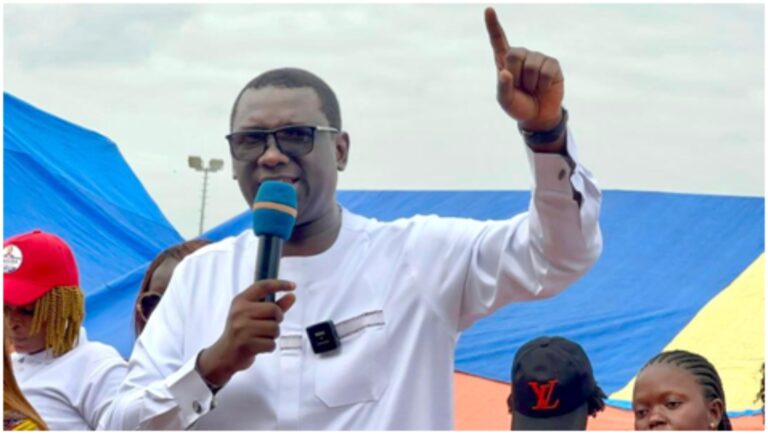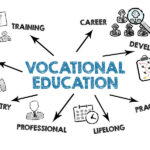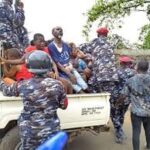A STORY OF DEDICATION AND SERVICE: PART 10
By Samuel Ben Turay (Ataya Pot)
Under the hazy sun of Sierra Leone’s northwest, where the land gives way to mangrove swamps and stubborn rivers, where the Rokel River snakes between the Port Loko and Karene districts, lies a modest but life-defining crossing known as the Mabanta Ferry. Its waters, sometimes still and other times swollen, have long dictated the rhythm of life in the surr ounding villages.
On ordinary days, it is simply a ferry, a wood-and-metal lifeline pulled across murky waters by cables and human will. When it breaks down, it became a blockade of life itself. And so, on a fateful day in December 2018, it became the crucible of leadership, compassion, and timely service. The ferry connects over 13 chiefdoms, Tambakha Simibungie, Safroko, Yobangie, Sella Limba, and others, linking fragile rural economies with basic amenities. It remains the cheapest and fastest access point between two underserved districts burdened by poor roads, inadequate clinics, and underfunded schools. In December 2018, that lifeline failed, until a single man stepped forward.
Dr. Ibrahim Bangura, then traversing the country on his APC “Door-to-Door” campaign, arrived at the banks of the Mabanta crossing to find chaos. Over a hundred stranded passengers: children, mothers, traders, and the elderly, clung to hope as the faulty ferry sat paralyzed.
With his trademark humility, Dr. Bangura offered funds to repair the cable system, provided food for the stranded, and, critically, stayed. Four hours under a sweltering sun, he sat among them, waiting.
“It was more than money,” said Osman Dumbuya, the ferry’s caretaker. “He stayed with us. He saw our pain.”
The repair was completed, and they crossed.
Isatu Conteh, then preparing for exams at the Junior Secondary School level, sat with her classmates, contemplating what this delay might cost: her promotion to the next class, or worse, her freedom. Now a final year university student at the Institute of Public Administration and Management (IPAM), she recalled how close she came to dropping out and being forced into marriage.
“If Dr. Bangura hadn’t fix that ferry, I would not be in university today.” Her father had already threatened early marriage if she failed. “That ferry was our school gate,” she would later say. “Without it, we had no future.”
Elsewhere on the riverbank, Fatmata Thullah, a widow who had finally remarried after eight years of loss, panicked as she waited. She had crossed to collect a debt that would help her husband’s court case, but news came that he was returning early. She hadn’t told him she had traveled. With the ferry stalled, so was her return, and her trust. “He would have thought I had something to hide,” she said. “That one delay could’ve cost me my home, my marriage, my peace.”
Aminata Sesay, a banana trader from Moforki, Port Loko, broke down when she arrived at the stranded wharf. “I saw my business, my children’s school fees, my whole life about to collapse,” she sobbed. An Osusu member and single mother, Aminata was on the brink of losing her cooperative savings due to missed payments. “If I lost that money, I couldn’t recover,” she said.
Thanks to Dr. Bangura’s support, the ferry moved. She sold her goods, met her obligations, and returned to stability.
This moment of humanitarian instinct is now being reviewed in strategic meetings among community representatives. On June 22, 2025, forty-seven villages gathered again, out of gratitude. They praised Dr. Bangura’s gesture and called for broader investments: a new bridge, better ferry maintenance, and infrastructure policies that treat the northwest as a partner in national development.
From the broken ferry ropes of 2018 to the political aspirations of 2025, the communities of Karene and Port Loko are remembering, and they are organizing. As one elder declared, “The next leader must not be the one who comes to dance with us during elections, but the one who sits with us when our children can’t get home.”
This is the type of leadership Sierra Leone has yearned for: one rooted not in promises, but in presence. Dr. Bangura simply stood with the people: poor farmers, market women, frightened teenagers, and restored a piece of their lives.
In the heart of Sierra Leone, a ferry once broken now carries a story of leadership, resilience, and hope, and the man who made it move again is still moving people to believe in change.







Cities’ message to world leaders: Unlock direct climate finance for Africa’s urban future